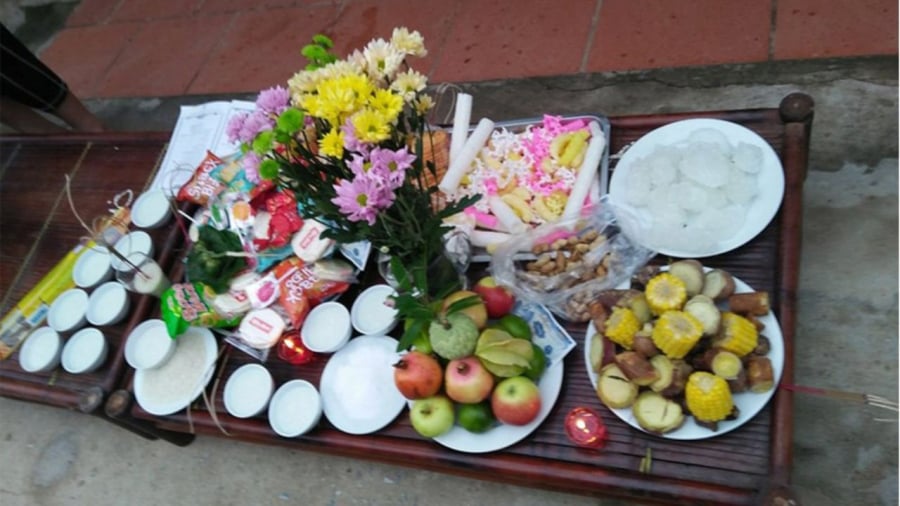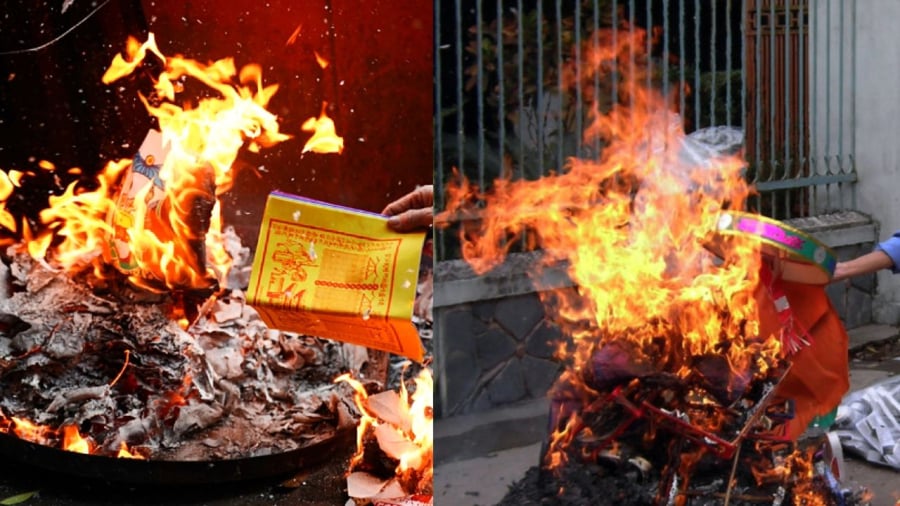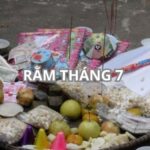Why Do People Worship Wandering Ghosts and Hungry Spirits in July?
Folklore suggests that the seventh month is when the King of Hell opens the gates of the underworld, allowing all hungry spirits and wandering ghosts to roam the mortal realm. As a result, people perform rituals to offer food and show their compassion. It is believed that these offerings will prevent the spirits from causing any harm or disturbances to the living.
According to tradition, the gates of the underworld close after 12 noon on the 15th of July, hence the importance of performing these rituals before this time. There is also a belief that the duration of the gates’ opening varies from year to year, sometimes starting before the 1st of July and ending after the 15th. However, generally speaking, the number of wandering ghosts decreases significantly post the 15th, which is why many people choose to postpone certain activities until after this date.

July is the month when families perform rituals for the wandering ghosts
Is the 14th of July an Auspicious Day for Performing these Rituals?
July coincides with the Ghost Festival or Vu Lan, so many families combine their rituals for the festival with those for the wandering ghosts, setting up two altars: one inside for the ancestors and one outside for the spirits. The timing of these rituals is ultimately up to each family’s convenience.
However, according to spiritual feng shui, it is best to perform these rituals on the 14th and the morning of the 15th. This is because the ghosts are believed to be on their way back to the underworld during this time and will, therefore, come to accept the offerings and leave without lingering. Superstition also holds that ghosts are afraid of light, so the ideal time to perform the rituals is between 5 and 7 pm.

Avoid burning too much joss paper and ghost money during the rituals
Things to Keep in Mind During the Rituals
It is recommended to offer vegetarian food during these rituals, which may include porridge, popcorn, milk, corn, potatoes, and fruits. Porridge is particularly important as it is believed to be easier for the spirits to consume than, for example, chicken and rice. Modern adaptations may also include milk.
Avoid burning excessive amounts of joss paper and ghost money. Offer vegetarian food to prevent arousing negative emotions like greed and attachment. After the rituals, remember to sprinkle salt, rice, and porridge outside the house, especially near walls and fences, as these are places where ghosts are believed to reside. Do not bring the offerings back into the house to avoid inviting the ghosts in.
Finally, it is customary to burn fires after the rituals and to step over them, symbolizing the removal of bad luck. It is also advisable to change clothes and take a bath to further dispel any lingering negative energy.
The Ritual Offerings
The specific offerings may vary slightly depending on regional customs and traditions, but generally, they include the following:
– Salt and rice (1 plate each)
– 12 bowls of thin porridge or 3 balls of rice
– 12 bars of brown sugar
– Paper clothes and ghost money (small denominations of real money can also be used)
– Sugarcane, left unpeeled and cut into small sections
– Sweets, cakes, and real money of various denominations
– Popped corn, boiled potatoes, corn, and cassava
– Five types of fruits of five different colors
– Three small glasses of water, three sticks of incense, and two small candles
The Chant for the Rituals
Nam mo A Di Da Phat! (Recited three times)
We pay our respects to the Bodhisattva Ksitigarbha and the Arhat Maudgalyayana
We also pay our respects to the City God, the Local Deity, the God of the Stove, and all the deities who preside over this place.
Today is the 15th day of the seventh month in the year of the Yin Fire Tiger.
We sincerely ask that, on this day of pardoning the dead, the gates of the underworld be opened to allow the homeless and forgotten spirits, those without graves or descendants, those who wander in the wilderness, under trees, in the grass, or on the streets, those who lack even a thin piece of clothing, to come and enjoy the offerings of food, drinks, fruits, flowers, candles, incense, money, and clothes prepared by the devotees. May the devotees and their families be blessed with good health, prosperity, harmony, and all good things, while all evils are taken away.
Nam mo A Di Da Phat! (Recited three times)
For reference only

































